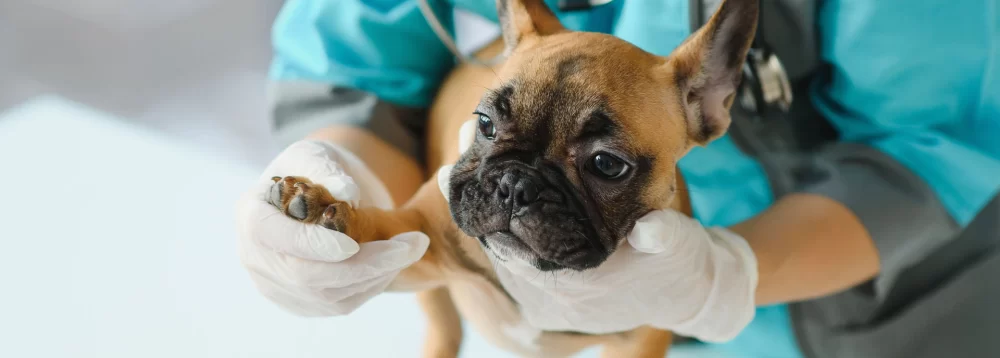What You Need to Know About Walk-In Emergency Care for Your Pets
As a pet owner, there's always that dreaded moment when you realize your furry friend might need urgent medical attention. Whether it's due to an unexpected injury, illness, or sudden symptoms, it’s essential to know where to go and what to expect. That's where walk-in emergency pet clinics come in, providing immediate care when your regular veterinarian might not be available. I’ll take you through my personal experience and what you need to know about these invaluable facilities for pets in need.

999 N State Rd 434 #1010, Altamonte Springs, FL 32714, USA
See Details1. What Exactly Is Walk-In Emergency Veterinary Care?
Walk-in emergency care for pets is a service that allows pet owners to take their animals to the clinic without needing an appointment or prior arrangement. These clinics are equipped to handle various urgent and unexpected medical situations, from broken bones to poisoning or even sudden onset of seizures. Just like how we would go to the emergency room for humans, pets too need a specialized place for when medical emergencies arise at inconvenient hours.
2. When Should You Consider Taking Your Pet to a Walk-In Emergency Clinic?
There are a few key situations when you should head straight to an emergency vet clinic. Here are some examples based on my own experiences:
- Injuries: Whether it’s a bite, cut, or broken limb, injuries can cause pain, bleeding, and swelling. Immediate care is needed to prevent infections or long-term damage.
- Severe Vomiting or Diarrhea: Persistent vomiting or diarrhea can lead to dehydration, which is especially dangerous in pets. In some cases, these could be signs of something more severe like poisoning.
- Severe Allergic Reactions: A pet’s allergic reaction to an insect bite, food, or medication could cause swelling of the throat, which could be life-threatening.
- Difficulty Breathing: Difficulty breathing, extreme lethargy, or collapse often point to conditions like heart disease, respiratory failure, or severe infections.
- Sudden Behavioral Changes: If your pet is suddenly acting confused, disoriented, or aggressive, it could be a sign of neurological issues or poisoning, requiring immediate intervention.
3. My Personal Experience with an Emergency Veterinary Clinic
I’ll never forget the panic I felt when my dog, Max, suddenly started vomiting uncontrollably one evening. It happened so quickly that I couldn’t even trace what caused it. After calling my regular vet, I was told that they were closed, and my best bet was to visit a local walk-in emergency pet clinic.
When we arrived, the clinic was bustling with activity, yet the staff was calm and efficient. Max was immediately seen by a veterinarian who took the time to explain the possible causes of his symptoms, and they conducted a series of tests. In less than an hour, we knew that Max had pancreatitis, which required urgent medical treatment. The entire process was smooth, and I was impressed by the professionalism and speed of care provided.
4. What Happens During a Visit to an Emergency Vet Clinic?
When you visit a walk-in emergency clinic, the first thing you'll do is check in and provide basic details about your pet’s condition. You'll answer questions about symptoms, any recent incidents, and your pet’s medical history. The staff will prioritize cases based on severity, which means if your pet’s condition is life-threatening, they will be seen right away.
Once in the exam room, the vet will perform a physical exam, and in most cases, diagnostic tests will be done to get to the root of the problem. Depending on your pet’s condition, treatment could range from medication to surgery. Some emergency clinics have specialized equipment for imaging and lab tests, enabling them to diagnose and treat your pet quickly and effectively.
5. The Benefits of Walk-In Emergency Clinics for Pets
While regular vet visits are crucial for ongoing care, emergency clinics offer unique advantages. Here are a few:
- Immediate Care: Emergency clinics are available 24/7, which is a lifesaver if your pet suddenly falls ill or is injured outside of regular office hours.
- Specialized Equipment: Many emergency vet clinics are equipped with advanced diagnostic tools like X-rays and blood labs to diagnose and treat serious conditions faster.
- Expertise in Critical Care: These clinics often have veterinary specialists with expertise in handling severe cases, including trauma, poisoning, or complex surgeries.
- Peace of Mind: Knowing that there’s a place to go when things go wrong provides comfort and peace of mind. These clinics are designed to offer relief during stressful situations.
6. How to Choose the Right Emergency Veterinary Clinic
While many clinics offer emergency services, not all are created equal. Here are a few tips to help you choose the right one for your pet:
- Location: Choose a clinic that is conveniently located. In emergencies, time is of the essence, and you want to avoid wasting precious minutes in traffic.
- Reviews and Reputation: Research online or ask other pet owners for recommendations. A clinic with a good reputation for providing quality emergency care can make all the difference in your pet’s outcome.
- Availability: Check if the clinic operates 24/7 or has after-hours services. It’s crucial to know that help is available when you need it the most.
- Services Offered: Look into the types of emergencies they can handle, such as surgery, poisoning, or critical care. Some clinics may offer more specialized services than others.
7. Hidden Brook Veterinary: A Trusted Partner in Emergency Care
When it comes to trusting your pet’s health in an emergency, you want a clinic that’s not only qualified but also compassionate. At Hidden Brook Veterinary, I’ve experienced firsthand how committed they are to providing exceptional care. Their emergency services are top-notch, and they go above and beyond to ensure your pet gets the best treatment possible in a crisis.
If you're ever in doubt about where to take your pet for emergency care, I highly recommend checking out Hidden Brook Veterinary. They offer a welcoming environment, professional staff, and the resources to handle any emergency situation your pet may face.











